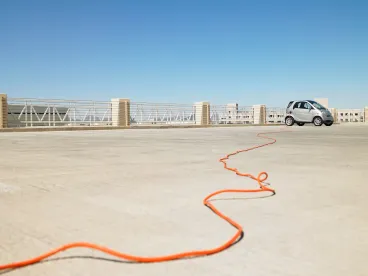A few weeks ago, another player threw its hat into the ring of outsiders hoping to bring electric cars to the masses. Dyson, famous for its vacuums and other consumer products, announced that it has begun work on its own battery-powered electric car, aiming for a 2020 release. While this move seems out of left field for a company with no prior ties to the automotive industry, it is premised on advances in solid-state batteries developed by Sakti3, a subsidiary of the vacuum maker since its acquisition in 2005.
Sakti3 was spun out of the University of Michigan and develops solid-state batteries, which are recognized for being more energy-dense and safer than traditional lithium ion batteries. While Dyson may have originally sought out Sakti3 to promote its cordless consumer products, the promise of solid state batteries dropping recharging times to be comparable with the time it takes to refill a tank of gas bodes well for Dyson’s attempt at expanding into the automotive space.
Sakti3 had been licensing various patents from the University until giving up some of its licenses earlier in 2017. Based on the later-announced electric car push, it is likely that Dyson and Sakti3 have taken steps to develop their own intellectual property, overcoming the need to maintain the patent license. If correct, this move would represent a substantial step forward for Dyson staking a claim to future battery market share by owning some exclusive rights to underlying solid-state batteries in cars.
While it is conceivable that Dyson could wind up developing and owning the underlying battery technology that will ultimately make electric cars interchangeable with their gas-burning counterparts, it is a substantial leap from developing a powertrain to designing and executing the launch of a brand new vehicle, especially if you have never built a car before. Dyson could do well to heed the lessons learned by Fisker and Aptera, which failed to scale production or become profitable. Even Tesla, with all its prestige in the world of electric cars, has run into constant roadblocks while getting Model 3 production up and running and has a questionable balance sheet for long-term viability. Without the institutional knowledge already in place for bringing a vehicle to market, Dyson would be better served by cutting out the distraction of the car as a whole and positioning itself in the automotive industry as a strategic supplier of batteries, alongside other battery producers such as LG Chem, Panasonic, and Tesla. By focusing on batteries alone and not the vehicle as a whole, Dyson can continue to parlay its battery technology into its consumer products, providing stronger long-term viability of the company, independent from the high-risk overture into automotive manufacturing and rising competition from the existing OEMs.



 />i
/>i

